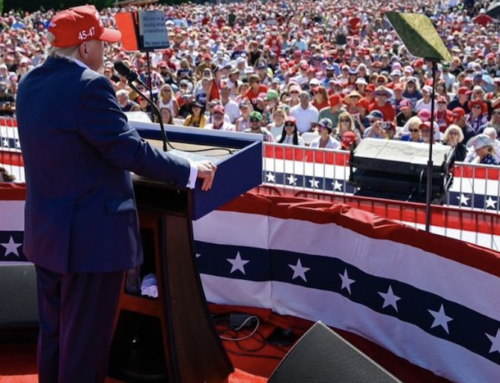Here is the IRS Part 1.132-5 from the Internal Revenue Code. We recommend you seek proper counsel with a financial tax advisor and a tax attorney for navigating your understanding and how this may apply to you.
(Links will bring you to an external website)
(m) Employer-provided transportation for security concerns —
(1) In general. The amount of a working condition fringe exclusion with respect to employer-provided transportation is the amount that would be allowable as a deduction under section 162 or 167 if the employee paid for the transportation. Generally, if an employee pays for transportation taken for primarily personal purposes, the employee may not deduct any part of the amount paid. Thus, the employee may not generally exclude the value of employer-provided transportation as a working condition fringe if such transportation is primarily personal. If, however, for bona fide business-oriented security concerns, the employee purchases transportation that provides him or her with additional security, the employee may generally deduct the excess of the amount actually paid for the transportation over the amount the employee would have paid for the same mode of transportation absent the bona fide business-oriented security concerns. This is the case whether or not the employee would have taken the same mode of transportation absent the bona fide business-oriented security concerns. With respect to a vehicle, the phrase “the same mode of transportation” means the use of the same vehicle without the additional security aspects, such as bulletproof glass. With respect to air transportation, the phrase “the same mode of transportation” means comparable air transportation. These same rules apply to the determination of an employee’s working condition fringe exclusion. For example, if an employer provides an employee with a vehicle for commuting and, because of bona fide business-oriented security concerns, the vehicle is specially designed for security, then the employee may exclude from gross income the value of the special security design as a working condition fringe. The employee may not exclude the value of commuting from income as a working condition fringe because commuting is a nondeductible personal expense. However, if an independent security study meeting the requirements of paragraph (m)(2)(v) of this section has been performed with respect to a government employee, the government employee may exclude the value of the personal use (other than commuting) of the employer-provided vehicle that the security study determines to be reasonable and necessary for local transportation. Similarly, if an employee travels on a personal trip in an employer-provided aircraft for bona fide business-oriented security concerns, the employee may exclude the excess, if any, of the value of the flight over the amount the employee would have paid for the same mode of transportation, but for the bona fide business-oriented security concerns. Because personal travel is a nondeductible expense, the employee may not exclude the total value of the trip as a working condition fringe.
(2) Demonstration of bona fide business-oriented security concerns —
(i) In general. For purposes of this paragraph (m), a bona fide business-oriented security concern exists only if the facts and circumstances establish a specific basis for concern regarding the safety of the employee. A generalized concern for an employee’s safety is not a bona fide business-oriented security concern. Once a bona fide business-oriented security concern is determined to exist with respect to a particular employee, the employer must periodically evaluate the situation for purposes of determining whether the bona fide business-oriented security concern still exists. Example of factors indicating a specific basis for concern regarding the safety of an employee are—
(A) A threat of death or kidnapping of, or serious bodily harm to, the employee or a similarly situated employee because of either employee’s status as an employee of the employer; or
(B) A recent history of violent terrorist activity (such as bombings) in the geographic area in which the transportation is provided, unless that activity is focused on a group of individuals which does not include the employee (or a similarly situated employee of an employer), or occurs to a significant degree only in a location within the geographic area where the employee does not travel.
(ii) Establishment of overall security program. Notwithstanding anything in paragraph (m)(2)(i) of this section to the contrary, no bona fide business-oriented security concern will be deemed to exist unless the employee’s employer establishes to the satisfaction of the Commissioner that an overall security program has been provided with respect to the employee involved. An overall security program is deemed to exist if the requirements of paragraph (m)(2)(iv) of this section are satisfied (relating to an independent security study).
(iii) Overall security program —
(A) Defined. An overall security program is one in which security is provided to protect the employee on a 24-hour basis. The employee must be protected while at the employee’s residence while commuting to and from the employee’s workplace, and while at the employee’s workplace. In addition, the employee must be protected while traveling both at home and away from home, whether for business or personal purposes. An overall security program must include the provision of a bodyguard/chauffeur who is trained in evasive driving techniques; an automobile specially equipped for security; guards, metal detectors, alarms, or similar methods of controlling access to the employee’s workplace and residence; and, in appropriate cases, flights on the employer’s aircraft for business and personal reasons.
(B) Application. There is no overall security program when, for example, security is provided at the employee’s workplace but not at the employee’s residence. In addition, the fact that an employer requires an employee to travel on the employer’s aircraft or in an employer-provided vehicle that contains special security features does not alone constitute an overall security program. The preceding sentence applies regardless of the existence of a corporate or other resolution requiring the employee to travel in the employer’s aircraft or vehicle for personal as well as business reasons.
(iv) Effect of an independent security study. An overall security program with respect to an employee is deemed to exist if the conditions of this paragraph (m)(2)(iv) are satisfied:
(A) A security study is performed with respect to the employer and the employee (or a similarly situated employee of the employer) by an independent security consultant;
(B) The security study is based on an objective assessment of all facts and circumstances;
(C) The recommendation of the security study is that an overall security program (as defined in paragraph (m)(2)(iii) of this section) is not necessary and the recommendation is reasonable under the circumstances; and
(D) The employer applies the specific security recommendations contained in the security study to the employee on a consistent basis.
The value of transportation-related security provided pursuant to a security study that meets the requirements of this paragraph (m)(2)(iv) may be excluded from income if the security study conclusions are reasonable and, but for the bona fide business-oriented security concerns, the employee would not have had such security. No exclusion from income applies to security provided by the employer that is not recommended in the security study. Security study conclusions may be reasonable even if, for example, it is recommended that security be limited to certain geographic areas, as in the case in which air travel security is provided only in certain foreign countries.
(v) Independent security study with respect to government employees. For purposes of establishing the existence of an overall security program under paragraph (m)(2)(ii) of this section with respect to a particular government employee, a security study conducted by the government employer (including an agency or instrumentality thereof) will be treated as a security study pursuant to paragraph (m)(2)(iv) of this section if, in lieu of the conditions of paragraphs (m)(2)(iv)(A) through (D) of this section, the following conditions are satisfied:
(A) The security study is conducted by a person expressly designated by the government employer as having the responsibility and independent authority to determine both the need for employer-provided security and the appropriate protective services in response to that determination;
(B) The security study is conducted in accordance with written internal procedures that require an independent and objective assessment of the facts and circumstances, such as the nature of the threat to the employee, the appropriate security response to that threat, an estimate of the length of time protective services will be necessary, and the extent to which employer-provided transportation may be necessary during the period of protection;
(C) With respect to employer-provided transportation, the security study evaluates the extent to which personal use, including commuting, by the employee and the employee’s spouse and dependents may be necessary during the period of protection and makes a recommendation as to what would be considered reasonable personal use during that period; and
(D) The employer applies the specific security recommendations contained in the study to the employee on a consistent basis.
(3) Application of security rules to spouses and dependents —
(i) In general. If a bona fide business-oriented security concern exists with respect to an employee (because, for example, threats are made on the life of an employee), the bona fide business-oriented security concern is deemed to exist with respect to the employee’s spouse and dependents to the extent provided in this paragraph (m)(3).
(ii) Certain transportation. If a working condition fringe exclusion is available under this paragraph (m) for transportation in a vehicle or aircraft provided for a bona fide business-oriented security concern with respect to an employee, the requirements of this paragraph (m) are deemed to be satisfied with respect to transportation in the same vehicle or aircraft provided at the same time to the employee’s spouse and dependent children.
(iii) Other. Except as provided in paragraph (m)(3)(ii) of this section, a bona fide business oriented security concern is deemed to exist for the spouse and dependent children of the employer only if the requirements of paragraph (m)(2) (iii) or (iv) of this section are applied independently to such spouse and dependent children.
(iv) Spouses and dependents of government employees. The security rules of this paragraph (m)(3) apply to the spouse and dependents of a government employee. However, the value of local vehicle transportation provided to the government employee’s spouse and dependents for personal purposes, other than commuting, during the period that a bona fide business-oriented security concern exists with respect to the government employee will not be included in the government employee’s gross income if the personal use is determined to be reasonable and necessary by the security study described in paragraph (m)(2)(v) of this section.
(4) Working condition safe harbor for travel on employer-provided aircraft. Under the safe harbor rule of this paragraph (m)(4), if, for a bona fide business-oriented security concern, the employer requires that an employee travel on an employer-provided aircraft for a personal trip, the employer and the employee may exclude from the employee’s gross income, as a working condition fringe, the excess value of the aircraft trip over the safe harbor airfare without having to show what method of transportation the employee would have flown but for the bona fide business-oriented security concern. For purposes of the safe harbor rule of this paragraph (m)(4), the value of the safe harbor airfare is determined under the non-commercial flight valuation rule of § 1.61–21(g) (regardless of whether the employer or employee elects to use such valuation rule) by multiplying an aircraft multiple of 200-percent by the applicable cents-per-mile rates and the number of miles in the flight and then adding the applicable terminal charge. The value of the safe harbor airfare determined under this paragraph (m)(4) must be included in the employee’s income (to the extent not reimbursed by the employee) regardless of whether the employee or the employer uses the special valuation rule of § 1.61–21(g). The excess of the value of the aircraft trip over this amount may be excluded from gross income as a working condition fringe. If, for a bona fide business-oriented security concern, the employer requires that an employee’s spouse and dependents travel on an employer-provided aircraft for a personal trip, the special rule of this paragraph (m)(4) is available to exclude the excess value of the aircraft trips over the safe harbor airfares.
(5) Bodyguard/chauffeur provided for a bona fide business-oriented security concern. If an employer provides an employee with vehicle transportation and a bodyguard/chauffeur for a bona fide business-oriented security concern, and but for the bona fide business-oriented security concern the employee would not have had a bodyguard or a chauffeur, then the entire value of the services of the bodyguard/chauffeur is excludable from gross income as a working condition fringe. For purposes of this section, a bodyguard/chauffeur must be trained in evasive driving techniques. An individual who performs services as a driver for an employee is not a bodyguard/chauffeur if the individual is not trained in evasive driving techniques. Thus, no part of the value of the services of such an individual is excludable from gross income under this paragraph (m)(5). (See paragraph (b)(3) of this section for rules relating to the determination of the working condition fringe exclusion for chauffeur services.)
(6) Special valuation rule for government employees. If transportation is provided to a government employee for commuting during the period that a bona fide business-oriented security concern under § 1.132–5(m) exists, the commuting use may be valued by reference to the values set forth in § 1.61–21(e)(1)(i) or (f)(3) (vehicle cents-per-mile or commuting valuation of $1.50 per one-way commute, respectively) without regard to the additional requirements contained in § 1.61–21 (e) or (f) and is deemed to have met the requirements of § 1.61–21(c).
(7) Government employer and employee defined. For purposes of this paragraph (m), “government employer” includes any Federal, State, or local government unit, and any agency or instrumentality thereof. A “government employee” is any individual who is employed by the government employer.
(8) Examples. The provisions of this paragraph (m) may be illustrated by the following examples:
Example 1.
Assume that in response to several death threats on the life of A, the president of X a multinational company, X establishes an overall security program for A, including an alarm system at A’s home and guards at A’s workplace, the use of a vehicle that is specially equipped with alarms, bulletproof glass, and armor plating, and a bodyguard/chauffeur. Assume further that A is driven for both personal and business reasons in the vehicle. Also, assume that but for the bona fide business-oriented security concerns, no part of the overall security program would have been provided to A. With respect to the transportation provided for security reasons, A may exclude as a working condition fringe the value of the special security features of the vehicle and the value attributable to the bodyguard/chauffeur. Thus, if the value of the specially equipped vehicle is $40,000, and the value of the vehicle without the security features is $25,000, A may determine A’s inclusion in income attributable to the vehicle as if the vehicle were worth $25,000. A must include in income the value of the availability of the vehicle for personal use.
Example 2.
Assume that B is the chief executive officer of Y, a multinational corporation. Assume further that there have been kidnapping attempts and other terrorist activities in the foreign countries in which B performs services and that at least some of such activities have been directed against B or similarly situated employees. ln response to these activities, Y provides B with an overall security program, including an alarm system at B’s home and bodyguards at B’s workplace, a bodyguard/chauffeur, and a vehicle specially designed for security during B’s overseas travels. In addition, assume that Y requires B to travel in Y’s airplane for business and personal trips taken to, from, and within these foreign countries. Also, assume that but for bona fide business-oriented security concerns, no part of the overall security program would have been provided to B. B may exclude as a working condition fringe the value of the special security features of the automobile and the value attributable to the bodyguards and the bodyguard/chauffeur. B may also exclude the excess, if any, of the value of the flights over the amount A would have paid for the same mode of transportation but for the security concerns. As an alternative to the preceding sentence, B may use the working condition safe harbor described in paragraph (m)(4) of this section and exclude as a working condition fringe the excess, if any, of the value of personal flights in the Y airplane over the safe harbor airfare determined under the method described in paragraph (m)(4) of this section. If this alternative is used, B must include in income the value of the availability of the vehicle for personal use and the value of the safe harbor.
Example 3.
Assume the same facts as in example (2) except that Y also requires B to travel in Y’s airplane within the United States, and provides B with a chauffeur-driven limousine for business and personal travel in the United States. Assume further that Y also requires B’s spouse and dependents to travel in Y’s airplane for personal flights in the United States. If no bona fide business-oriented security concern exists with respect to travel in the United States, B may not exclude from income any portion of the value of the availability of the chauffeur or limousine for personal use in the United States. Thus, B must include in income the value of the availability of the vehicle and chauffeur for personal use. In addition, B may not exclude any portion of the value attributable to personal flights by B or B’s spouse and dependents on Y’s airplane. Thus, B must include in income the value attributable to the personal use of Y’s airplane. See § 1.61–21 for rules relating to the valuation of an employer-provided vehicle and chauffeur, and personal flights on employer-provided airplanes.
Example 4.
Assume that company Z retains an independent security consultant to perform a security study with respect to its chief executive officer. Assume further that, based on an objective assessment of the facts and circumstances, the security consultant reasonably recommends that 24-hour protection is not necessary but that the employee be provided security at his workplace and for ground transportation, but not for air transportation. If company Z follows the recommendations on a consistent basis, an overall security program will be deemed to exist with respect to the workplace and ground transportation security only.
Example 5.
Assume the same facts as in example (4) except that company Z only provides the employee security while commuting to and from work, but not for any other ground transportation. Because the recommendations of the independent security study are not applied on a consistent basis, an overall security program will not be deemed to exist. Thus, the value of commuting to and from work is not excludable from income. However, the value of a bodyguard with professional security training who does not provide chauffeur or other personal services to the employee or any member of the employee’s family may be excludable as a working condition fringe if such expense would be otherwise allowable as a deduction by the employee under section 162 or 167.
Example 6.
J is a United States District Judge. At the beginning of a 3-month criminal trial in J’s court, a member of J’s family receives death threats. M, the division (within government agency W) responsible for evaluating threats and providing protective services to the Federal judiciary, directs its threat analysis unit to conduct a security study with respect to J and J’s family. The study is conducted pursuant to internal written procedures that require an independent and objective assessment of any threats to members of the Federal judiciary and their families, a statement of the requisite security response, if any, to a particular threat (including the form of transportation to be furnished to the employee as part of the security program), and a description of the circumstances under which local transportation for the employee and the employee’s spouse and dependents may be necessary for personal reasons during the time protective services are provided. M’s study concludes that a bona fide business-oriented security concern exists with respect to J and J’s family and determines that 24-hour protection of J and J’s family is not necessary, but that protection is necessary during the course of the criminal trial whenever J or J’s family is away from home. Consistent with that recommendation, J is transported every day in a government vehicle for both personal and business reasons and is accompanied by two bodyguards/chauffeurs who have been trained in evasive driving techniques. In addition, J’s spouse is driven to and from work, and J’s children are driven to and from school and occasional school activities. Shortly after the trial is concluded, M’s threat analysis unit determines that J and J’s family no longer need special protection because the danger posed by the threat no longer exists and, accordingly, vehicle transportation is no longer provided. Because the security study conducted by M complies with the conditions of § 1.132–5(m)(2)(v), M has satisfied the requirement for an independent security study, and an overall security program with respect to J is deemed to exist. Thus, with respect to the transportation provided for security concerns, J may exclude as a working condition fringe the value of any special security features of the government vehicle and the value attributable to the two bodyguards/chauffeurs. See Example (1) of this paragraph (m)(8). The value of vehicle transportation provided to J and J’s family for personal reasons, other than commuting, may also be excluded during the period of protection, because its provision was consistent with the recommendation of the security study.
Example 7.
Assume the same facts as in Example (6) and that J’s one-way commute between home and work is 10 miles. Under paragraph (m)(6) of this section, the Federal Government may value transportation provided to J for commuting purposes pursuant to the value set forth in either the vehicle cents-per-mile rule of § 1.61–21(e) or the commuting valuation rule of § 1.61–21(f). Because the commuting valuation rule yields the least amount of taxable income to J under the circumstances, W values the transportation provided to J for commuting at $1.50 per one-way commute, even though J is a control employee within the meaning of § 1.61–21(f)(6).





